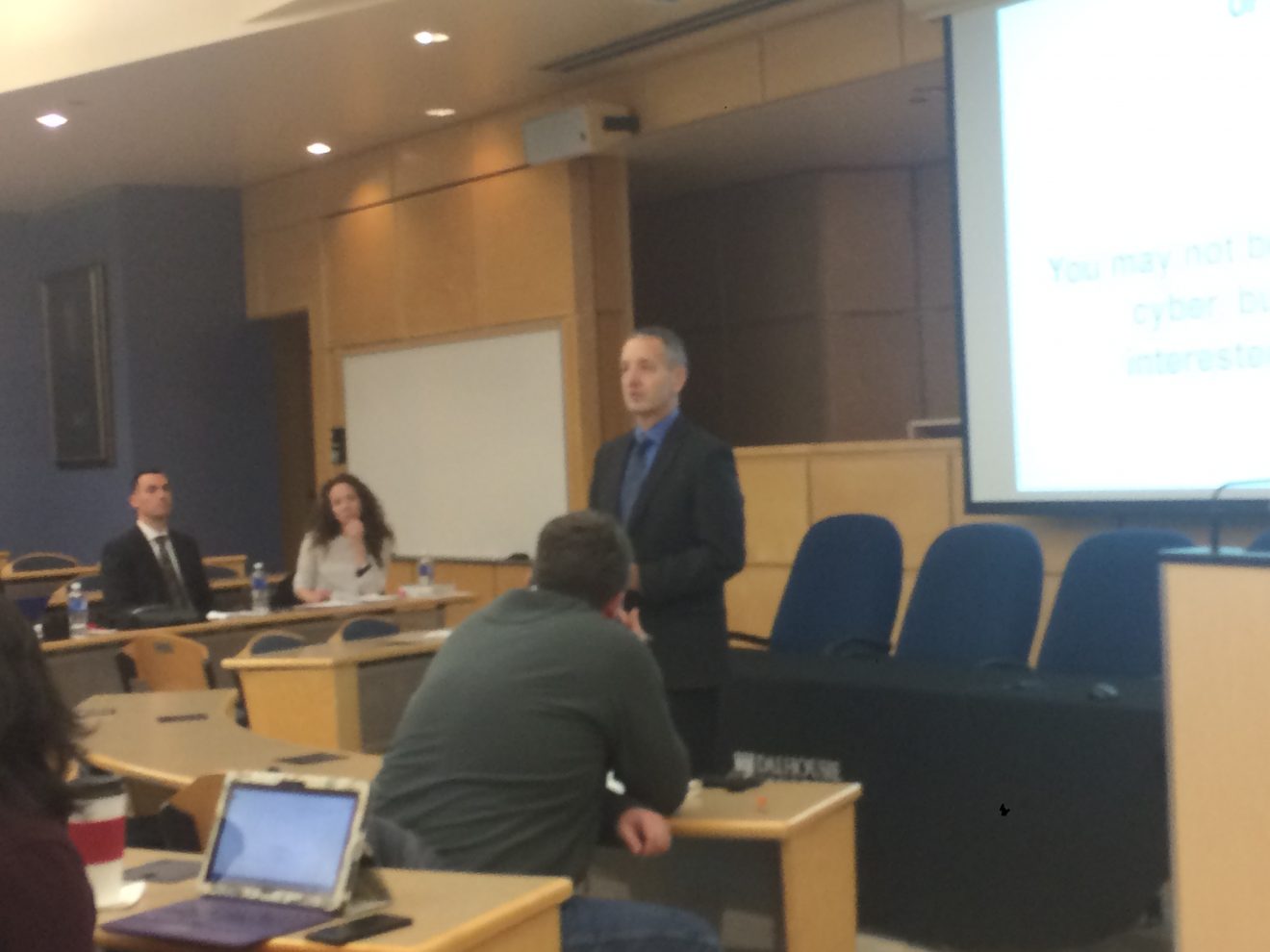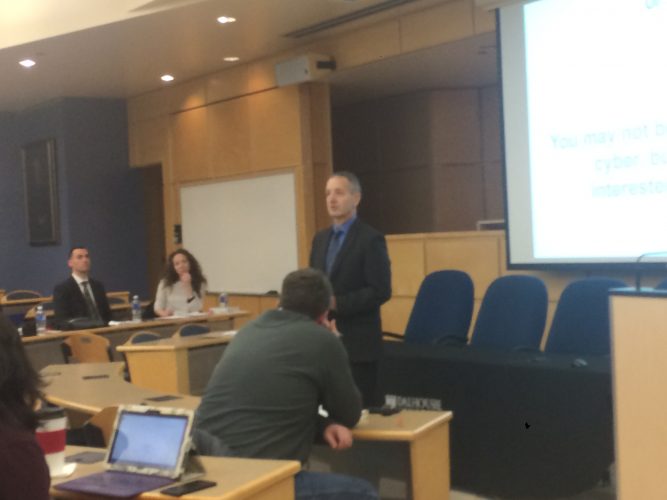Law
Cyber warfare and disruptions discussed at Dalhousie
Conference sheds light on the future of war both on and off the battlefield

caption
Gary Brown (standing) speaks during the annual International Humanitarian Law conference at Dalhousie on January 27.
caption
Gary Brown (standing) speaks during the annual International Humanitarian Law conference at Dalhousie on Jan. 27.Stephaine Carvin wants lawyers to think about how “cyber attacks are challenging how we think about conflicts.”
She was speaking about cyber warfare to an audience of about 100 people at Dalhousie University for the annual International Humanitarian Law (IHL) conference on Jan. 27.
“You have situations where Russian ships park over and sever cables and the Internet in the ocean,” she said. “It’s very problematic.”
The conference was organized by the John E. Read International Law Society and the Dalhousie Law and Technology Institute. It was held in partnership with the Canadian Red Cross.
The conference also included Gary Brown, a professor of Cyber Security at Marine Corps University in Quantico, Virginia and Catherine Gribben, who works at the Red Cross as a senior legal advisor on international humanitarian law.
“It is very difficult to draw lines between peace and armed conflicts at times,” said Gribbin. “Lines can get blurry very quickly.”
And those lines are only getting further blurred by the ins and outs of digital warfare.
“All systems we use to communicate, move things and mobilize troops are cyber,” said Brown, who served 24 years with the United States Air Force as a judge advocate.
“They make great targets for your adversaries.”
There is debate in national security and technology circles, Brown explained, between what constitutes a “cyber disruption” and a “cyber attack.”
“The main question is is the action violent?” said Brown, also noting that another point of consideration is whether the action caused any damage, injury or death. If it just caused inconvenience, it would be considered a disruption, he says.
“A smart guy with a keyboard gets into your computer system and does whatever he wants. Is that an attack?,” asked Brown.
After the keynote, there was a panel discussion featuring three experts in the field. One of the experts, Jonathon Penney, is an assistant professor of law at Dalhousie. He said that one problem with hacker attacks is they can “take advantage of plausibility deniability when it comes to hacking cases.” Penney said to solve that problem, “everyone needs to work together to get more transparency: governments, NGOs and the private sector.”
Penney believes online hackers should be subject to the principles of the Geneva Convention, if they are arrested.
Major Max Reede, legal advisor to Joint Task Force Atlantic and Maritime Forces Atlantic, was also on the panel. He said he understands how difficult it can be to set global standards in the fight against hacking.
“Establishing international norms poses a huge challenge when it comes to cyber attacks,” he said.
Reede added to this by saying that the cyber area is an area of growth and development for the Canadian military, and that this process will last for the next few years.
The event was capped off with Robert Currie, director of the Law and Technology Institute. He offered hope that further exploration of this topic can help a changing world.
“This event demonstrates the progress we need so desperately in this field,” said Currie. “It’s so important that we keep doing this. It is the best way to advance debate and discuss issues. It’s what universities were invented for.”

